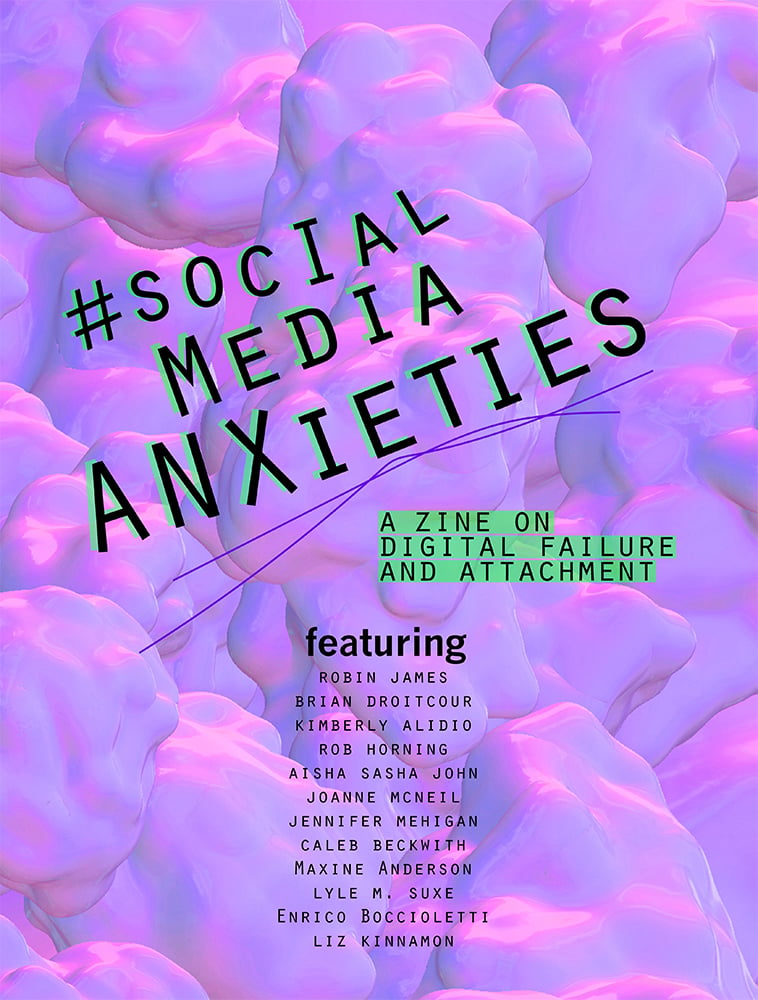
#socialmediaanxieties: a zine on digital failure and attachment
$10.00
In 1969 Herbert Marcuse wrote that technical advancement held the key to an alternative individual and collective consciousness, asserting that once technical capacity reached a certain threshold our drives and aspirations could be freed from “debilitating competition for social survival and advancement.”[1] Forty-four years later, in April of 2013, Lauren Berlant posted an entry to her blog, Supervalent Thought:
The pervasive and intense austerity of the moment sucks the air out in a slow oxygen leak that makes asthmatics of us all. Politics is not just for genres of demonstration and demand. It requires also genres of checking in to provide a little breathing space that allows for redistributing and disturbing negative affect, de-isolating ourselves-in-damage, and hatching strategies for not reproducing the violence, for moving the scene of life to an alter-real.[2]
This call for submissions is a call to begin thinking about social media in terms of attachment; it is an invitation to examine the thrust of the above statements vis-à-vis the internet. Within the context of economic crisis and downward mobility, have social networking sites been climates for checking in, the oxygen Berlant deems necessary for politics and survival, or simply another mode through which to perform the perfect capitalist subject? Has the austerity of our time been reflected through social media, amounting to a perpetual, panoptical austerity of the self that sacrifices the expressions we cannot “afford”? How many of our posts equate to damage control against accusations of unemployability? Has the hegemonic atmosphere on Facebook and Twitter become something “bigger than us,” and is going against the grain on social media akin to saving the world by taking shorter showers—an individualistic plan for an insurmountable problem of structure? Our likeability is more visible and visual than ever, and when faced with the “choice” of posting-to-please vs. intuitively mining the self is the latter simply too much to risk? Is being active on social media always already self-exposure, and is posting for likeability an attempt at circumventing it, at impenetrability?
“… We refuse to be worn out is our secret motto,” Berlant wrote, but the aim of this zine is to begin a conversation about whether we refuse to be worn out on the internet. Wherefore your attachment, in what ways do you risk, and toward what particular kinds of relations does the internet induce you to dream?
***
With pieces by Robin James, Brian Droitcour, Kimberly Alidio, Rob Horning, Aisha Sasha John, Joanne McNeil, Jennifer Mehigan, Caleb Beckwith, Maxine Anderson, Lyle Suxe, Enrico Boccioletti, and Liz Kinnamon